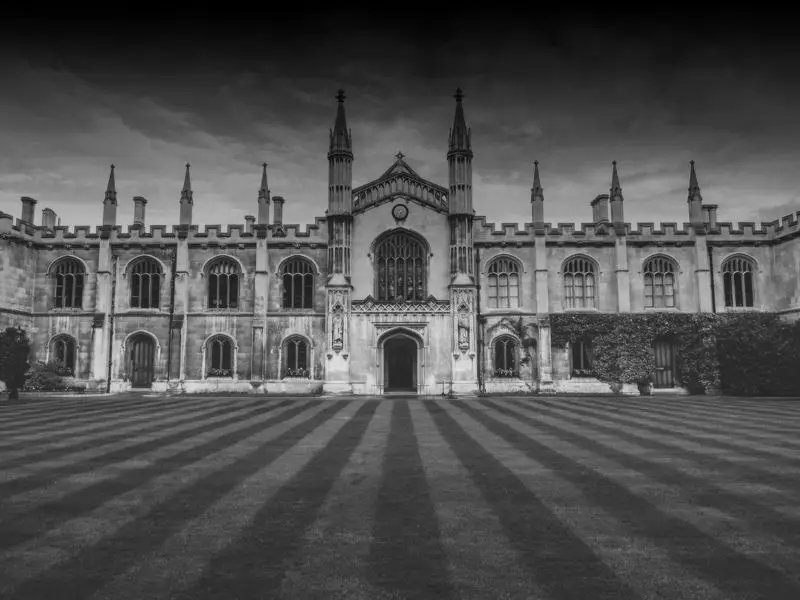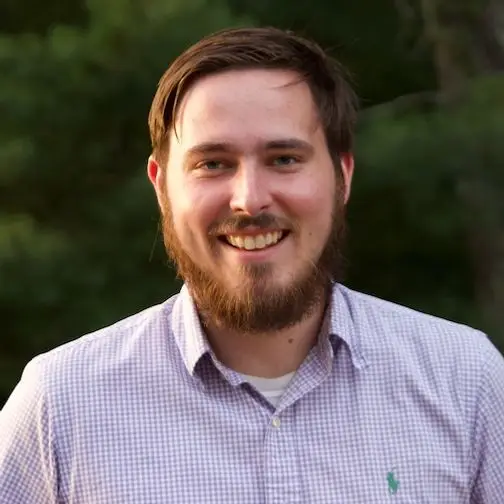The Moral Foundation of Education: A Response to the Ivy League Controversy

Our broken world never lacks things like wars and controversies. Sadly, it’s to be expected in a world full of sin, brokenness, distrust, and conflict.
That doesn’t make it easy or simple to think critically and respond when these things do arise.
No doubt you’ve seen the news of conflict in the Middle East and the proxy conflicts that have erupted here at home with various groups advocating strongly for their view of how the conflict in Israel should be handled.
As these battles (both figurative and literal) have raged increasingly in the last two months, an eruption of controversy has also taken place in America’s historically-distinguished halls of academia. As the issues in the Middle East have led to passionate debate on college campuses, concerns have arisen about antisemitism, hate speech, and calls for violence against certain ethnic groups.
In the midst of those concerns, the presidents of some of America’s most prestigious academic institutions have been called before Congress to testify regarding their university’s response to the situation.
The testimonies of leaders at schools such as Harvard, MIT, and the University of Pennsylvania, have led to further controversy as the nation debates whether these institutions are doing enough to balance free expression of thought with a concern for the safety and wellbeing of their students from different ethnic backgrounds.
The future of education in your inbox.
Get productivity tips, commentary, and Unbound updates sent to you!
In one sense, the conflict in the Middle East is spilling over onto US college campuses and university leaders are facing controversy and criticism for how they have “refereed” (or failed to) this proxy strife.
What We Have Noticed
Unbound is not in the business of editorial journalism or political commentary. We are no more experts in foreign wars than we are in the economy or immigration policy.
However, this controversy does invite our insight, not because we have the exact answers to the problems of geopolitics or congressional hearings, but because the controversy surrounding American academia’s response has revealed major shortfalls in the way that our higher education system by-and-large approaches the task of educating young people and preparing them for a healthy, productive, and thriving life.
And that is something we have no little amount of confidence in addressing.
We exist as a company to see young adults thrive. We define that as living out their purpose, engaging in healthy and meaningful relationships, and bringing glory to God through a resilient life. And whatever you may think personally about the issues that are debated on college campuses, I believe that we can agree that the way these issues are approached are seldom conducive to helping young people thrive, according to the definition above.
The Moral Nature of Education
One thing in particular that the recent academic controversies have shown us, is that many may take for granted the essential moral nature of education.
This was not taken for granted by the predecessors of our day. Figures throughout history have recognized the necessity of moral education and the reality that education teaches not just information but values also. Theodore Roosevelt is said to have observed, “To educate a person in mind and not in morals is to educate a menace to society.” Whether the quote is legitimately attributable to him or not, the principle certainly holds weight.
C.S. Lewis, in his masterful Abolition of Man, observes that, according to Aristotle, “the aim of education is to make the pupil like and dislike what he ought.” Some may scoff and say that this sounds an awful lot like propaganda and indoctrination. But consider for a moment whether any education can successfully teach a student about the world they inhabit without instilling in them some form of a value system which they can use to interpret that world.
Consider the question of the origin of life and the universe. To our modern ears this may be treated as a “scientific” question. But we cannot get away from the reality that whether we pursue an answer through worldview questions, scientific analysis, reading Scripture, or anything else, our conclusions will play a role in how we live morally.
Let’s bring this back to the controversy at hand: how are we to think critically about the eruption of passionate discourse surrounding academia’s response to the issues in the Middle East?
A clear conclusion we can draw has to do with the moral nature of the questions before us. It is not a matter of political persuasion or academic information. The students, faculty, staff, donors, and leadership of these institutions under fire are all people made in the image of God with an essentially morality-oriented nature. That is, they are people who care about right and wrong. I doubt any of them are purely pragmatic about this debate and this controversy. They may have various degrees of moral compromises or a faulty moral compass, but no one is denying that there is a moral component to the whole issue.
Education is built on a moral framework and foundation. We are seeing a clash of moral values at play here. That is what all the controversy is about. It’s not as much that this academic leader said this and that wasn’t smart. It’s that they said something that was deemed not right. It is an inherently moral debate.
At Unbound, we recognize this reality. Morality exists in the foundation of any education. Even the most skeptical, secular university bases their teaching on a moral framework. In fact, one could argue that the most “secular” academic institutions are often the most outspokenly “moral” in their proclamations about the world’s problems.
Unbound’s role is not to radically change or control our student’s moral foundations. We recognize the need for institutions like the church and family to help students build these frameworks. However, there is always a moral dimension to our courses and programs as we help students thrive and apply wisdom in their lives.
Running the Republic
We also feel strongly that part of thriving personally is to help one’s community and country thrive. That means having the skills to “run the republic”. Prominent among those skills is the ability to make sound moral judgments.
The current situation in the news surrounding academia and the controversies in which it is embroiled points out how our higher education system, as it stands now, is largely “dropping the ball” when it comes to the responsibility to teach this skill. Thousands of students are morally confused and when pressed for leadership on the question, America’s academia fails to provide clarity.
In a moment like this it can be easy to start throwing stones at the big bad boogeyman of higher ed. We’re not interested in doing that. Instead, we’re interested in digging deeper and recognizing that the failure of American academia that we have witnessed recently is not just about words and talking points in congressional meetings. It’s about the moral foundation of the institutions that our nation largely trusts for preparing the next generation. And it’s about the failure to realize that all education is moral at some level and the failure, as educators, to take that responsibility seriously.
If the education and preparation of the next generation of American leaders is built on a moral foundation, whose foundation will it be?
Morally-Confused Academia
We humbly yet confidently submit that the “secular” morality of institutions like Penn, Harvard, and MIT, has demonstrated its own deficiencies in the wake of recent events. A morally-confused higher education system as currently displayed in the Ivy League bubble, is unlikely to produce the thriving young adults that Unbound is on a mission to see developed.
A morally-confused academia has no consistent basis for teaching young people how to order their lives around a God-given and world-serving purpose.
A morally-confused academia lacks the tools to equip young people for healthy, productive relationships that heal human brokenness rather than contribute to it.
A morally-confused academia shows its deficiency for training young people to develop resilience so as to live their lives for the glory of God.
Based on what we have seen from American halls of higher education, not just in the past few months but also the previous decades, we cannot expect the system as it is today to succeed in providing our young people with a faithful and enduring moral foundation or in equipping them with the tools, abilities, perspectives, skills, and relationships they need to thrive.
Looking Ahead With Hope
However, we should not abandon the expectation that those things must be done. The historied halls of our long-standing colleges and universities may be a shell of their former glory but there is no expiration date for high-quality life preparation.
As we look back at the men and women who built the Ivy League, and were built by it, we recognize that in large part, the Ivy League built America. Our nation’s founding fathers (and those who took the baton from them) were predominantly trained at places like Princeton, Yale, and Harvard.
We don’t despair when we survey the landscape of higher education today. We see it as an opportunity to return to the original spirit of our nation’s academic heritage. Our founding fathers and mothers were, to use the words attributed to Theodore Roosevelt, trained in mind as well as morals. Their lives were built on a solid foundation of moral clarity, wisdom, and bona fide American practicality.
This heritage is still alive today. And we don’t pretend that it only exists within the context of Unbound’s courses and programs. There are a number of families, individuals, and communities across the country who are putting a high value on the kind of education and life preparation that emphasizes the things that we see as central to a life of thriving: purpose, relationships, and resilience.
And when we look at the projects our students are engaged in and the way they are ordering their lives for maximum impact in the kingdom of God we don’t feel quite so concerned about what college presidents say on Capitol Hill.



